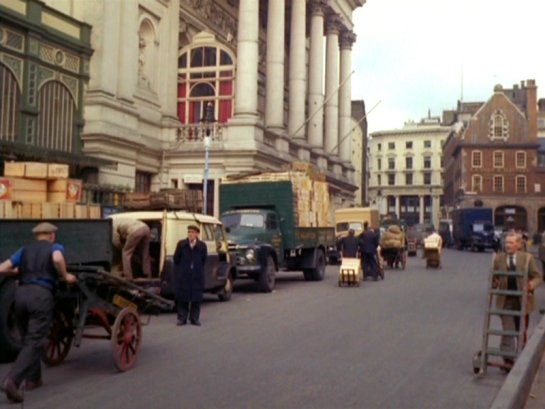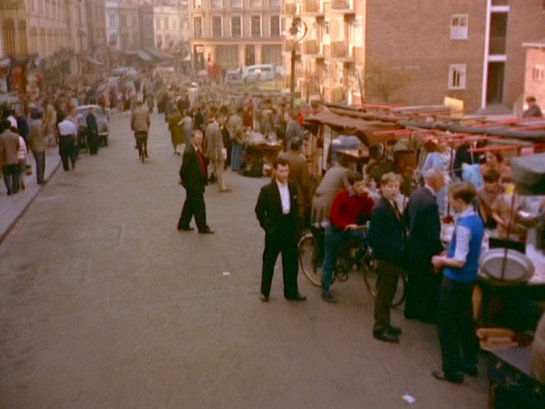Memorial Day Book List
by Charles Hugh Smith
Learning about past and present wars is one way of honoring those who sacrificed so much in those conflicts.
Today we honor those citizens who made sacrifices that are incomprehensible to those of us who have not experienced combat or the horrors of being prisoners of war.
Despite the senselessness and waste of war, it seems that the capacity to wage war is innate in humanity; even usually peaceful chimpanzees will eradicate a weaker nearby troop which is competing for limited resources.
Within any society there is always a latent class of warriors--sometimes reluctant, sometimes not. When there is no war, these citizens must divert their talents into other pursuits; in peace their warrior natures are often under-appreciated or even scorned. And then when war comes, we turn to these citizens.
As incomprehensible as it may be to others, the warrior is not just drawn to war; it is not in his/her nature to miss it for anything in the world.
Even if we hate war with every fiber of our beings, the history of our nation (and most other nations) pivots on wars and even specific battles. Over the years, knowledgeable readers have recommended a variety of books on war, and those who have fought them.
Learning their stories is one way of honoring our warriors, eager and reluctant alike. To know nothing of them and their sacrifices is not just ignorance, it is an insult. With that solemn thought, I offer this list of recommended books.
Like most people, my own interests and family have guided my reading. I read Prisoners of the Japanese: Pows of World War II in the Pacific because it was written by my friend (and eminent historian) Gavan Daws. My father served in the Pacific Theater in World War Two, my uncle served in the European Theater (8th Air Force, B-17s) and my grandfather had served in a "4-stack" destroyer just after World War One, so these eras are naturally engaging. I know so many combat veterans of the Vietnam War that my interest in their stories is also natural.
My wife's uncle Jackson Tsue served in the storied amd much decorated 442nd Combat Regiment Team--his name is on the monument to the 442nd in downtown Los Angeles, at the "Go For Broke" National Education Center which we visited in 2007.
As for the Iraq and Afghanistan wars, a number of readers of this blog, as well as our friends and family members in the Marine Corps and U.S. Army, have served active duty in those conflicts, and it is our obligation as citizens to try to understand what they have experienced and sacrificed, and what memories will remain with them for the rest of their days.
Here are the lists. There are thousands of books on these topics and this is but a tiny selection, but it is a start.
The Rhythm of War
by Terence Parker
War Is a Force that Gives Us Meaning
The Father of Us All: War and History, Ancient and Modern
A War Like No Other: How the Athenians and Spartans Fought the Peloponnesian War
Brave New War: The Next Stage of Terrorism and the End of Globalization
Personal Memoirs of Ulysses S. Grant
The Pursuit of Victory: The Life and Achievement of Horatio Nelson
The Art Of War by Sun Tzu
For God and Glory: Lord Nelson and His Way of War
Big Story: How the American Press and Television Reported and Interpreted the Crisis of Tet 1968 in Vietnam and Washington
About Face/the Odyssey of an American Warrior
Dispatches
Prisoner of War: Six Years in Hanoi
Iraq/Mideast
Through Our Enemies' Eyes: Osama bin Laden, Radical Islam, and the Future of America
The Occupation of Iraq: Winning the War, Losing the Peace
Fiasco: The American Military Adventure in Iraq
Licensed to Kill: Hired Guns in the War on Terror
World War II
Goodbye, Darkness: A Memoir of the Pacific War
William Manchester
The Last Lion: Winston Spencer Churchill
William Manchester
American Caesar: Douglas MacArthur
William Manchester
With the Old Breed: At Peleliu and Okinawa
Eugene Sledge
Prisoners of the Japanese: Pows of World War II in the Pacific
Gavan Daws
The Last Stand of the Tin Can Sailors: The U.S. Navy's Finest Hour
James D. Hornfischer
Miracle at Midway
Gordon Prange
Shattered Sword: The Untold Story of the Battle of Midway
Jonathan Parshall and Anthony Tully
Winds of War\War and Remembrance
Herman Wouk
Unlikely Liberators: The Men of the 100th and 442nd
Masayo Duus and Peter Duus
The Rape of Nanking: The Forgotten Holocaust of World War II
Iris Chang
Stones from the River
by Ursula Hegi
I Will Bear Witness 1942-1945: A Diary of the Nazi Years
Stilwell and the American Experience in China, 1911-45
The Collapse of the Third Republic: An Inquiry into the Fall of France in 1940
World War Two:
recommended by Lloyd L.
Flights of Passage: Recollections of a World War II Aviator Samuel Hynes
We Few: The Marine Corps 400 in the War Against Japan
Bill Dickenson
My Father's War: A Son's Journey Peter Richmond
Tennozan: The Battle of Okinawa and the Atomic Bomb George Feifer
Helmet For My Pillow Robert Leckie
Iwo Jima: Legacy of Valor Bill Ross
The Peenemunde Raid: The Night of 17-18 August 1943 Martin Middlebrook
Tarawa: The Story of a Battle Robert Sherrod
Stopped at Stalingrad: The Luftwaffe and Hitler's Defeat in the East, 1942-1943 Joel Hayward
Saving the Breakout: The 30th Division's Heroic Stand at Mortain, August 7-12, 1944Alwyn Featherston
Hell in Hürtgen Forest: The Ordeal and Triumph of an American Infantry Regiment Robert Rush
A Bridge Too Far: The Classic History of the Greatest Battle of World War II Cornelius Ryan
The Fall of Berlin 1945 Anthony Beevor
Recommended by John U.
The Forgotten Soldier Guy Sajer
The Long Walk: The True Story of a Trek to Freedom Slavomir Rawicz
I Will Bear Witness 1942-1945: A Diary of the Nazi Years
World War One:
Recommended by John U.
Mud Beneath My Boots: A Poignant Memoir of the Effects of War on a Young New Zealander
Allan Marriott
Recommended by Lloyd L.
Goodbye to All That
The Guns of August
The Great War and Modern Memory
Unknown Soldiers: The Story of the Missing of the First World War
Duffy's War: Fr. Francis Duffy, Wild Bill Donovan, and the Irish Fighting 69th in World War I
The Doughboys: The story of the AEF, 1917-1918
The First Day on the Somme
The Roses of No Man's Land
Storm of Steel
The Arms of Krupp
Documentaries/films
Lessons of Darkness
(documentary on the oil fires lit by Iraqi forces in Desert Storm, by Werner Herzog)
| Thank you, Raymond W. ($20), for your exceptionally generous donation to the site-- I am greatly honored by your support and readership. | Thank you, Russ J. ($50), for your second staggeringly generous donation to the site-- I am greatly honored by your encouragement and readership. |






























